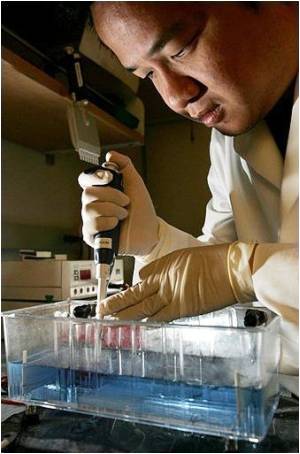The key participants in a molecular pathway that holds therapeutic promise for reducing the severity of type 2 diabetes has been identified by scientists.

"Several previous studies have shown that if you block adenosine signaling, insulin resistance is diminished. However, it wasn't known exactly how the process worked or which cells were directly involved," said senior author and La Jolla Institute scientist Joel Linden.
Linden's team identified the primary cellular players in the adenosine-fueled inflammation cascade that contributes to insulin resistance.
Their study, in animal models, also tested the effectiveness of a recently synthesized adenosine receptor blocker.
"We found that if you use this molecule to selectively block one of the adenosine receptors, insulin resistance is decreased and diabetes gets better," said Linden.
The study led by Linden involved scientists from Pennsylvania State University, the University of Virginia, the La Jolla Institute for Allergy and Immunology and Clinical Data, Inc.
Advertisement
"We believe, as do many scientists, that insulin resistance involves macrophages, which are cells of the body that contribute to inflammation," Linden explained.
Advertisement
By using an adenosine receptor blocker, the team prevented the adenosine from activating the macrophages, according to Linden.
As a result the tissues began to better respond to insulin, which reduces blood sugar levels in diabetic animals.
The findings were published in the February issue of the scientific journal Diabetes.
Source-ANI















